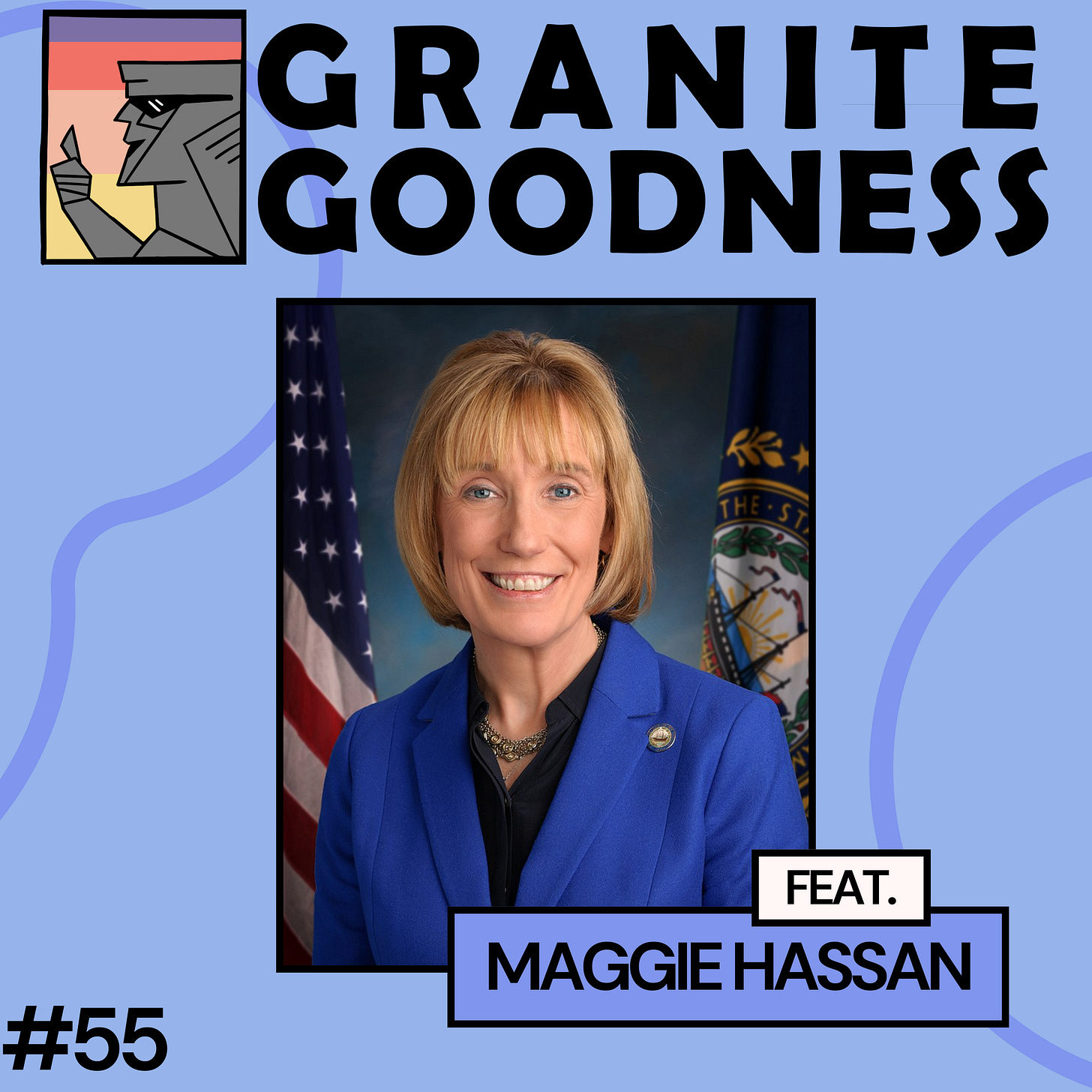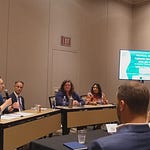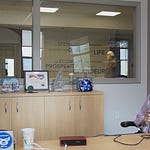This is Maggie.
She’s a U.S. Senator, a former New Hampshire governor, and a steadfast believer in the power of democracy to improve lives.
In this episode, Senator Maggie Hassan reflects on the values that shaped her—from her parents’ example of public service to her own journey as a mom, advocate, and leader. She shares why optimism isn’t fluff—it’s fuel. And how New Hampshire’s spirit of direct engagement, pragmatism, and neighborly accountability offers a model for national renewal.
With stories that span from World War II battlefields to grocery store conversations, Maggie makes the case that freedom, service, and civic connection aren’t just ideals—they’re responsibilities.
She believes skepticism is healthy, cynicism is dangerous, and that real change starts when we see each other not as partisans or politicians, but as people.
Notes:
Thank you to Senator Hassan and her team for helping to make this happen!
This episode was recorded at Senator Hassan’s office in Manchester, NH.
Music provided by Sneaky Miles.
Episode Summary*
Why did you want to come on the podcast?
Because this show is about something I care deeply about: the idea that optimism can be a force for real change. Too often, our public conversations are dominated by fear or division. Granite Goodness flips that script—it highlights people who are showing up, solving problems, and making their communities stronger. That’s the New Hampshire I know and love, and I wanted to be part of that story.
How do you define optimism in the context of public service?
To me, optimism isn't about blind positivity—it’s about believing that every person has value and that together we can build something better. In a democracy, that belief is foundational. It means trusting that good ideas can come from anywhere, that people are capable of change, and that the future can be shaped—not just endured. It’s not naive. It’s a choice to act, even when the path forward is hard.
Why do you think New Hampshire plays such a unique role in shaping civic life?
New Hampshire has this incredible culture of direct engagement. People here don’t wait for someone else to fix things—we pitch in. Whether it’s serving on a school board, showing up to a town hall, or stopping a senator in the grocery store, Granite Staters take ownership of their communities. That culture has influenced me profoundly throughout my career—and I think it sets an example for the country.
What do you think fuels the growing disconnect people feel from government and politics?
I think people feel disillusioned because they don’t see results, or they don’t feel heard. And that disconnect is made worse by a national narrative that treats politics as a sport instead of a public trust. I always try to remind people: skepticism is healthy. Ask tough questions. Demand accountability. But don’t let that turn into cynicism—because cynicism convinces us not to care, and democracy can’t survive apathy.
What personal experience shaped your belief in what government can do?
My son Ben, who has very severe cerebral palsy, changed everything for me. When he was born, we didn’t know what his future would hold. But because of the advocacy and policies put in place by people who believed in inclusion—people who came before us—he was able to go to school, make friends, and be part of a community. That’s not just personal. That’s democracy in action. That’s what happens when people decide everyone deserves a fair shot.
How is New Hampshire perceived by your colleagues and peers nationally?
People know us for our motto—Live Free or Die—but more than that, they admire our civic engagement. We’re small but mighty. Whether it’s the first-in-the-nation primary or just the way people here hold their leaders accountable, New Hampshire has a reputation for being thoughtful, principled, and deeply connected to the democratic process. We punch above our weight—and that’s something I take pride in.
What are some stories that keep you hopeful in this work?
Every month I get to name a Granite Stater of the Month. These are people who see a need and do something about it—often quietly, without fanfare. A six-year-old picking up trash during the pandemic. A teen teaching free coding classes. A healthcare worker who started a food program for cancer patients. These are the stories I carry with me. They remind me what’s possible when people lead with compassion and purpose.
What do you say to people who feel their voice doesn’t matter anymore?
I understand that feeling, and I don’t dismiss it. But I always say: come talk to us. Reach out. Show up to a roundtable, send an email, come to a town hall. New Hampshire is one of the few places left where your elected officials are still your neighbors—and that means your voice truly can shape policy. We may not fix everything overnight, but you will be heard. That matters.
What makes civic life in New Hampshire so special to you?
It’s the proximity. It’s the fact that if you’re frustrated about something, you can probably talk to the person responsible within a week—maybe even at the hardware store. There’s no ivory tower here. Public service is viewed as a community job, not celebrity. That humility and accessibility is baked into our culture, and I think it’s one of our greatest strengths.
Where do you find hope when things feel heavy or uncertain?
In people. In small acts of service and connection. And yes, also in routines—exercise, crossword puzzles, music. But mostly, I find hope in seeing how many people quietly show up every day to make their communities better. That’s where the real work of democracy happens. Not in grand speeches, but in persistence and care.
What concerns you most about the current moment in American democracy?
That we forget how fragile this all is. Democracy isn’t self-sustaining—it depends on us. On institutions, yes, but also on norms, trust, and participation. If we let cynicism win, if we stop believing in each other, we lose something precious. That’s why I care so much about protecting the rule of law, the right to vote, and the ability to speak freely. These aren’t abstract ideals—they’re the scaffolding for everything else.
What does being an optimist look like in practice for you?
It means choosing to engage. Choosing to believe that progress is possible. It means showing up, listening, and trying again—even when things are hard. I’m an optimist because I’ve seen what’s possible when people come together with shared purpose. And because I know the power of communities like ours, who keep showing up for each other.
What’s your message to young people or emerging leaders in New Hampshire?
Your voice matters more than you know. Don’t wait until you feel perfectly qualified—none of us are. Bring your values, your curiosity, your energy. We need it. This state, this country, our democracy—it’s yours to shape. And there’s no better place to start than here.
*This episode summary was generated by an AI analyzing a transcript of the interview. The questions, wording, and written meaning of particular sections may contain slight differences to the original conversation. We include these summaries to give listeners a brief, readable synopsis of the episode. The full episode transcript is available on granitegoodness.com.












